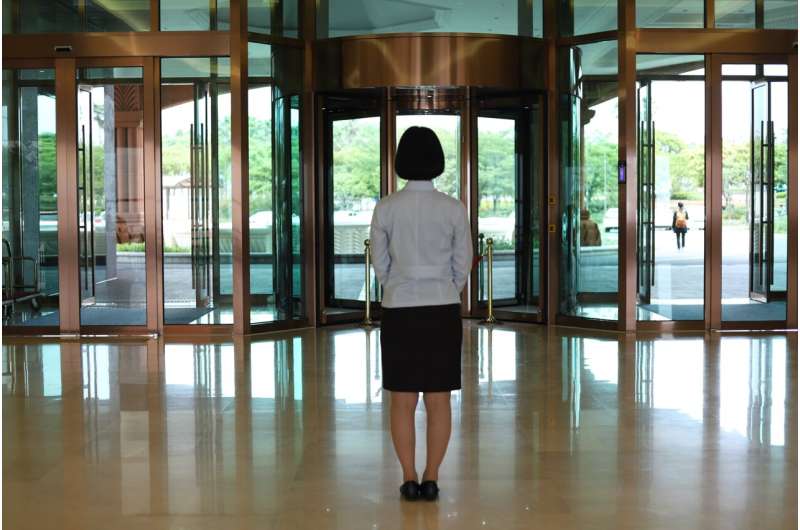This article has been reviewed according to Science X's editorial process and policies. Editors have highlighted the following attributes while ensuring the content's credibility:
fact-checked
peer-reviewed publication
trusted source
proofread
Study of 'revolving door' in Washington shows one-third of HHS appointees leave for industry jobs

Almost one-third of government appointees to the Department of Health and Human Services (HHS) leave to take jobs in private industry, according to a study by the USC Schaeffer Center for Health Policy & Economics and Harvard University.
The study, published in Health Affairs, is the first to quantify the personnel movement between health-care industries and the government agencies that regulate them, according to the authors. Although there are understandable reasons for people to move between the public and private sectors, the study notes that such a revolving door could make government agencies more vulnerable to pro-industry bias.
"Laws passed by Congress get a lot of attention, but a lot of the real action actually happens at the regulatory level," said study co-author Genevieve Kanter, senior fellow at the USC Schaeffer Center and associate professor at the USC Sol Price School of Public Policy. "Regulatory agencies can decide the fortunes of many companies."
To measure the scope of the revolving door, Kanter and study co-author Daniel Carpenter of Harvard University examined the career histories of 766 people appointed to HHS between 2004 and 2020. The study focused on HHS employees occupying political appointments, which include the agency heads, senior level administrators and their aides.
In examining the inflows from and exits to industry, researchers found the following:
- 15% had been employed in private industry immediately before their appointment.
- Nearly a third (32%) of appointees left their government jobs for industry.
- Compared with other sectors (e.g.: government, nonprofit, and academia), industry accounted for the greatest share of exits.
- The offices with the highest shares of appointees leaving for industry jobs were the Centers for Disease Control and Prevention (54%) and the Centers for Medicare and Medicaid Services (53%).
The share of appointees leaving for industry jobs did not vary by political party of the appointing president, though Republicans were more likely to appoint people directly from industry, according to the study.
A revolving door is not surprising or necessarily bad, the authors noted. Compared to government jobs, employees can earn higher salaries in biopharmaceutical and information technology industries. Government regulators who previously worked in industries they're regulating may have useful insights, as well.
"What I am really concerned about is whether the personnel flow might lead to biases in government decision making," said Kanter, who plans to explore that question in future research.
There are federal laws addressing issues with the revolving door, including one that prohibits former federal employees from immediately lobbying on behalf of private organizations. But such "cooling off laws" typically last one to two years and are very narrow in scope, Kanter said.
"They do not broadly cover a lot of lobbying related to agency decision making—like regulations and drug authorizations—so they don't necessarily deter that behavior," she said. "The direction one might go is to expand the cooling off laws. But that's a blunt instrument for a lot of subtle things that might be going on in terms of the effects of the revolving door."
More information: The Revolving Door In Health Care Regulation, Health Affairs (2023). DOI: 10.1377/hlthaff.2023.00418 , www.healthaffairs.org/doi/abs/ … 7/hlthaff.2023.00418



















